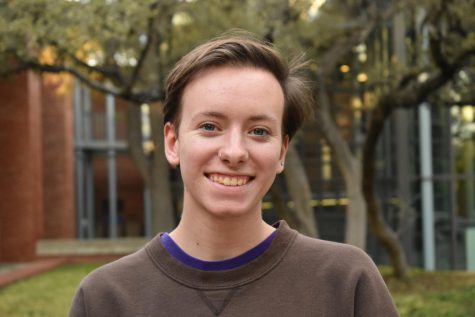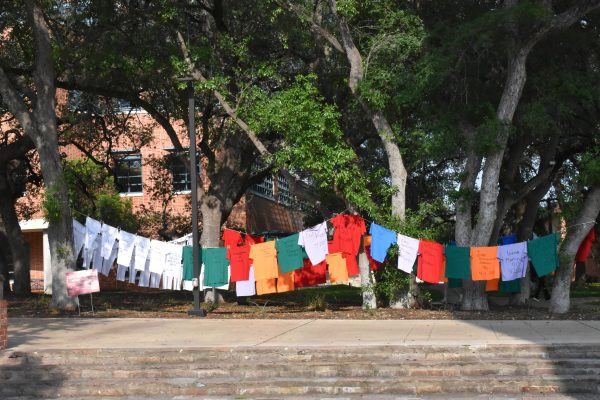Previously, on SGA: Potential housing changes and funding requests
The following covers the meeting on March 3
New senator introduction
To start the meeting, President Oliver Chapin-Eiserloh introduced David Casillas, the newest senator for the Class of 2023.
Climate Check
Communications Chair Rebecca Wicker began climate check with an inquiry about microwaves in the Coates Student Center, asking why they haven’t returned since pre-COVID. Adviser Jamie Thompson said to ask Charles Robles about possibly bringing them back. The area where microwaves were is no longer there after renovations in Coates.
First-year Senator Ani Siva asked if there is an update on changing one’s name on their Tiger Card to their chosen name. Adviser Thompson said Adviser Dean Brown can provide an update on this concern after spring break but believes there is motion to make this a possibility.
First-year Senator Harrison Tinker mentioned that there was a COVID warning sign on the top of the stairs of Cardiac Hill that said the area had been warded off for the COVID team. Adviser Thompson suggested emailing the Nerve Center to confirm if this signage was used by Facilities Services as they block areas to work on plumbing.
Funding requests
The Trinity University Latino Association (TULA) presented to SGA, requesting $4,895.07 to fund a mini-market event. The pop-up would allow any students (who RSVP’d) to shop around the Fiesta Room, receiving free items or snacks from 10 local Latinx businesses with the goal of improving engagement and awareness of these small businesses. The event is planned for March 30 and up to 50 students are expected to attend, said the TULA representatives. SGA fully funded the request with the stipulation that the event be open to more than 50 students.
The Trinity chapter of Health Occupation Students of America (HOSA) presented their proposed budget for attending a conference in Galveston, Texas from April 18 to April 23. The original funding request of $3,090 included mileage reimbursement for travel, food, hotel accommodations and materials and equipment. Five students are planning to attend the conference, including one student chaperone. SGA funded $2791.52, not including food or more than one car’s mileage.
Residential Life update
Bret Biance, Director of Residential Life, attended the SGA meeting to present on three topics: programmatic changes through the fall semester, staffing and community changes and City Vista.
Biance said Residential Life is looking to the past in order to bring back traditional programming that went away during the pandemic. Their goal is to blend “educational and social” through events like Upper Division happy hour where students can have fun while learning real life skills. At the end of the spring semester, RAs will participate in focus groups to gauge what programming is reasonable for which years and halls.
When it comes to staffing and community concerns, Biance said one of the biggest ones is compression. With a 3-year residency requirement, the higher the retention rate is, the more compressed the rooms get in campus housing. The pandemic has changed where first-years, sophomores and juniors would traditionally live on campus, and the RA allocation has been just as mixed up.
He mentioned the first-year resident to RA ratio is 18-19 to one whereas the Upper Division student to RA ratio ranges from 55-132 to one thanks to a mass exodus of RAs last year. Residential Life is in the recruitment process for six new senior leadership positions as RA mentors or Community Managers.
Next, Biance shared a likely change in residential hall allocations and said these decisions will be finalized soon. Given that they will be made official, Lightner Hall will revert to its traditional Upper Division status. Murchison and Calvert Halls will be sophomore college areas. Both McLean and Miller South Halls will be first-year only areas, and Prassel and Thomas Halls will remain sophomore college areas. Sophomore Senator Danny Nguyen asked when these changes would be effective if finalized, and Biance said they would be effective next semester.
President Oliver Chapin-Eiserloh asked if adding McLean as a fully first-year hall would make up for the first-year beds lost by turning Calvert into a sophomore dorm. Biance said there will be a difference of 30 to make up for, but nothing is final.
Senior Senator Samuel Grimsley asked if Residential Life collects any data gauging student feelings toward the 3-year residency requirement. Biance said no, and since it’s a mandate set by the Board of Trustees, it’s unlikely that it will change. Adviser Thompson reiterated this, saying SGA has spoken to the Trustees directly about this issue, but it’s a distinctive feature of Trinity they usually don’t entertain changing.
Finally, Biance turned to City Vista. The construction work on City Vista is slightly behind schedule, but there was a built-in buffer of time in case this happened. On March 18, Biance is supposed to get a last update on whether the green light for housing students in City Vista next year will be given or not. He doesn’t want to open the housing application to fill City Vista before guaranteeing it will be open next academic year.
If City Vista isn’t ready for next year, accommodations for upperclassmen will be difficult, according to Biance, because there aren’t enough beds in Upper Division housing to cover all students in their 3-year residency requirements. This was part of the reason City Vista was originally purchased. Because of this, 150 out of 310 beds in City Vista need to be for juniors to alleviate compression in Upper Division residence halls. There is no data as of now for who wants to live in City Vista next year.
Communications Chair Wicker asked if single occupancy rooms are still available in City Vista. According to Biance, about 66-67% of the rooms in City Vista are doubles and the others are singles. They have set up double occupancy rooms next to single occupancy rooms so no one wants to switch rooms over the view from the apartment.
Chief of Staff Lisel Faust asked if Trinity is still able to guarantee housing for all four years of college with the new changes. Biance said for Trinity to not have the accommodations for all students, the senior class would have to be obscenely large and all of them would have to want to live on campus for a fourth year. The number of beds on campus is 2079, and needing to house the entire student population is unlikely.
Sophomore Senator Emily Baggett asked when housing prices will be announced for next year. Biance said he thinks the President will announce this soon, and Adviser Thompson said there was a board meeting in February discussing this, so any changes should be announced soon. Baggett also wanted to know how room selection will work. According to Biance, residents will have a specific time to sign up and they are working with the software to accommodate gender neutral housing requests.
Officer reports
Chief of Staff Faust sent emails about SGA absences and current standings to members. They are allowed two excused and two unexcused absences before impeachment proceedings begin.

I am a senior French and Earth Systems Science double major from St. Louis, MO. When I'm not wearing my EIC hat, I am also a Chapel | Spiritual Life Fellow,...











